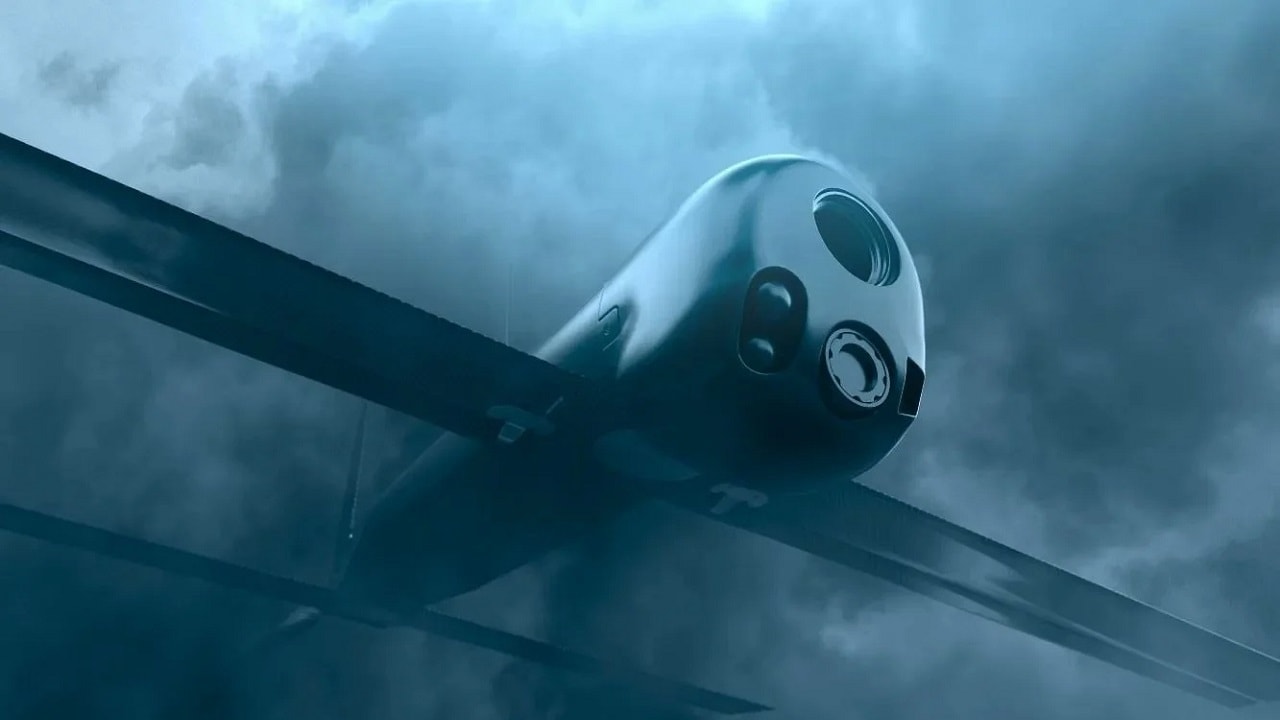Ukraine is striking back in a way it hasn’t previously done in its more than nine-month war with Russia. On Tuesday, a third Russian airfield was targeted in a drone attack, just a day after Ukraine demonstrated an apparent ability to penetrate hundreds of kilometers deep into Russian airspace when it attacked two Russian airbases, including one that was just 150 miles from Moscow.
According to multiple reports on Tuesday morning, officials in the Russian city of Kursk, located close to the border with Ukraine, released photos that showed black smoke above an airfield in the early morning hours of Tuesday after the latest strike. The region’s governor said an oil storage tank there had been set ablaze, but added there were no casualties.
This was the first time Ukraine has been able to strike targets so deep within Russia, and the bases had generally been thought of as “untouchable.” Engels-2, one of Russia’s bases hit in Monday’s attack is home to the 21st & 184th Heavy Bomber Aviation Regiments, which operates a number of Tu-95M and Tu-160M bombers.
One of the country’s largest airfields, it has been used to launch many of the Kremlin’s missile strikes against Ukraine, including with Kh-101 cruise missiles.
Another explosion was reported at the Dyagilevo military airbase in Ryazan, a city less than 150 miles from Moscow and also housed Tu-95 bombers.
A fuel truck was reported to have exploded, causing minor damage to two Tu-22 bombers.
Russia Counters Claims from Ukraine
The Russian Ministry of Defense had said that Ukrainian drones were from the Soviet era and that they were successfully shot down at two air bases on Monday. However, satellite images indicated that there was some damage to Russian military planes at one base in the Ryazan region, while locals reported hearing loud explosions.
The Ukrainian Defense Ministry has not commented, and the government in Kyiv has not acknowledged adding long-range drones to its arsenal.
Yet, presidential adviser Mykhaylo Podolyak appeared to refer to the reports via a tweet, writing, “The Earth is round – discovery made by Galileo. Astronomy was not studied in Kremlin, giving preference to court astrologers. If it was, they would know: if something is launched into other countries’ airspace, sooner or later unknown flying objects will return to departure point.”
The New York Times, citing a senior Ukrainian official, reported that the drones involved in Monday’s strikes were launched from Ukrainian territory, while at least one of the attacks was conducted with the help of a special operations team that was able to move into position close to the base.
Drone Strikes Anger Russia
Russian pro-war commentators have reacted with fury, labeling Monday’s strike as a terrorist attack and calling it a humiliation that the country’s nuclear airbases were vulnerable to a drone attack. The commentators blamed negligence among the bases’ commanders.
“If Russia assesses the incidents were deliberate attacks, it will probably consider them as some of the most strategically significant failures of force protection since its invasion of Ukraine,” Britain’s Ministry of Defence said on Tuesday via a string of tweets.
The Kremlin responded to Monday’s attacks by launching another wave of missile strikes on Ukraine, and it is expected that a similar sortie will be conducted following this third humiliating attack so deep within Russia.
A Senior Editor for 19FortyFive, Peter Suciu is a Michigan-based writer. He has contributed to more than four dozen magazines, newspapers, and websites with over 3,000 published pieces over a twenty-year career in journalism. He regularly writes about military hardware, firearms history, cybersecurity, and international affairs. Peter is also a Contributing Writer for Forbes and Clearance Jobs. You can follow him on Twitter: @PeterSuciu.

